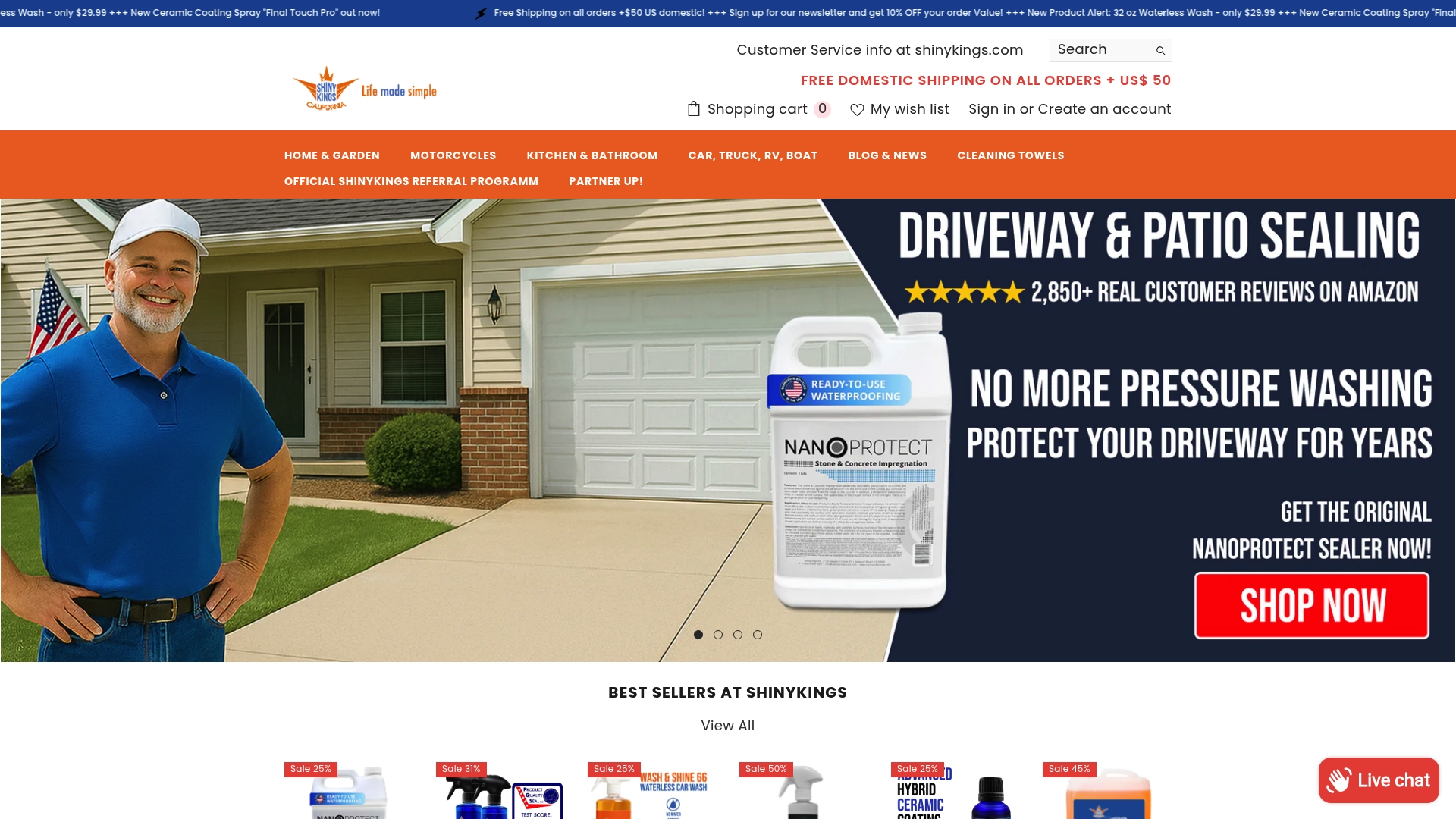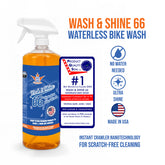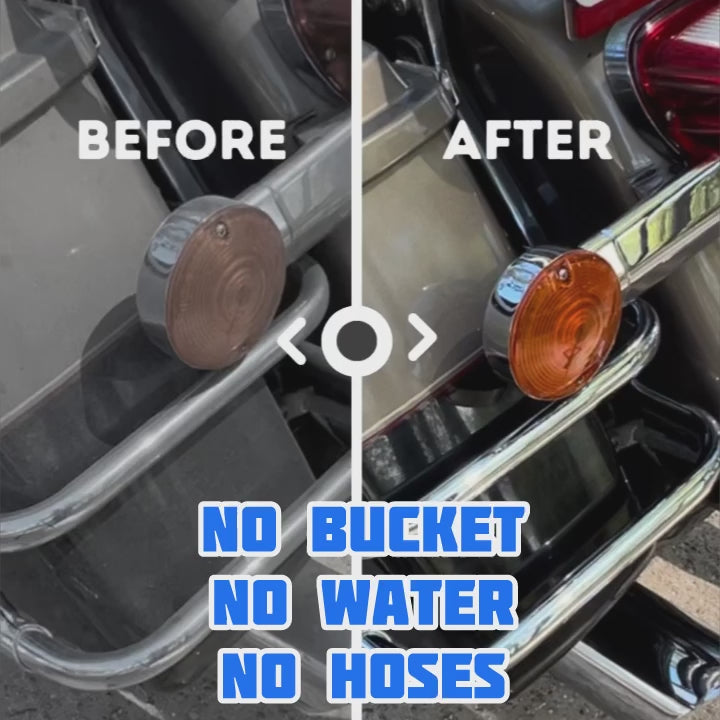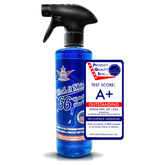Understanding the Role of Glass Coatings for Homeowners
Glass coatings are everywhere now, popping up on windows, cars, and even your phone screen. But while we usually think of glass as just see-through and fragile, that idea is way off. The real story is that a coated glass window can actually block up to 99 percent of harmful UV rays, transforming ordinary glass into a protective shield with high-tech benefits you can feel.
Table of Contents
- What Are Glass Coatings And Their Purpose?
- Why Glass Coatings Matter For Home And Vehicle Care
- How Glass Coatings Work: Principles And Benefits
- Key Concepts And Types Of Glass Coatings Explained
Quick Summary
| Takeaway | Explanation |
|---|---|
| Glass coatings enhance glass performance. | These coatings create protective barriers that improve thermal and optical properties, making glass more efficient and durable. |
| Homeowners can save energy with coatings. | Coatings improve thermal insulation, leading to reduced energy consumption and lower utility bills in homes. |
| Glass coatings protect against environmental damage. | They shield glass surfaces from UV radiation, temperature changes, and contaminants, increasing their lifespan. |
| Different coatings serve specific purposes. | Options like Low-E, self-cleaning, and UV-blocking coatings address unique challenges and enhance functionality. |
| Automotive glass coatings improve safety. | Enhanced visibility and reduced glare from coatings contribute to safer driving conditions during adverse weather. |
What are Glass Coatings and Their Purpose?
Glass coatings represent sophisticated surface treatments designed to enhance the performance and functionality of glass surfaces across residential and commercial applications. These microscopic layers transform ordinary glass into high-performance architectural and technological components that provide substantial benefits beyond traditional uncoated glass.
The Science Behind Glass Coatings
At their core, glass coatings are thin molecular films applied directly to glass surfaces using advanced technological processes. These specialized treatments modify the glass’s inherent properties by creating a protective barrier that interacts with environmental factors like sunlight, temperature, and external contaminants. Learn more about advanced glass coating technologies reveals that these coatings can dramatically improve energy efficiency and environmental performance.
The primary mechanisms of glass coatings involve manipulating light transmission and thermal properties. By incorporating specific molecular compounds, manufacturers can engineer coatings that:
- Reflect harmful ultraviolet radiation
- Reduce infrared heat transfer
- Minimize solar gain
- Enhance optical clarity
- Provide additional surface protection
Practical Applications for Homeowners
Homeowners can benefit significantly from understanding glass coatings. These advanced treatments offer solutions for various residential challenges, from energy conservation to aesthetic improvements. Whether applied to windows, doors, or architectural glass elements, modern coatings provide multifunctional advantages.
Specifically, glass coatings can help homeowners address critical concerns such as:
- Reducing energy consumption by improving thermal insulation
- Protecting interior furnishings from UV-related fading
By selecting appropriate glass coatings, homeowners can transform standard glass surfaces into intelligent, performance-driven architectural elements that contribute to overall home efficiency and comfort. Read our comprehensive guide on glass coating technologies to explore how these innovative solutions can enhance your living spaces.
Why Glass Coatings Matter for Home and Vehicle Care
Glass coatings have emerged as transformative solutions that extend far beyond aesthetic improvements, offering substantial protection and performance enhancements for both residential and automotive environments. These advanced treatments represent a critical investment in preserving and optimizing glass surfaces across different applications.
Protection Against Environmental Challenges
Glass coatings act as a critical defense mechanism against numerous environmental stressors that can degrade glass surfaces over time. According to energy efficiency research, these specialized treatments provide a remarkable barrier against ultraviolet radiation, temperature fluctuations, and potential surface damage.
For homeowners and vehicle owners, this protective layer translates into tangible benefits:
- Reduced surface degradation
- Enhanced durability of glass surfaces
- Minimized maintenance requirements
- Extended lifespan of windows and automotive glass
Economic and Performance Advantages
Beyond protection, glass coatings deliver significant economic advantages. By improving thermal regulation, these coatings help reduce energy consumption in homes and improve fuel efficiency in vehicles. Discover more about ceramic coating technologies to understand how these innovative solutions can optimize your investment.
The performance benefits are particularly noteworthy for vehicle owners. Automotive glass coatings provide:
- Enhanced visibility during challenging weather conditions
- Reduced glare and improved driving safety
- Better resistance to environmental contaminants
- Easier cleaning and maintenance
Ultimately, glass coatings represent a smart, proactive approach to maintaining and enhancing glass surfaces.
The following table summarizes the main protective and economic advantages of glass coatings for both homeowners and vehicle owners for quick reference.
| Advantage | Home Application | Vehicle Application |
|---|---|---|
| Protection against UV radiation | Yes | Yes |
| Improved thermal insulation | Yes | Yes |
| Reduced maintenance requirements | Yes | Yes |
| Enhanced surface durability | Yes | Yes |
| Enhanced visibility/safety | — | Yes |
| Resistance to environmental damage | Yes | Yes |
| Reduced energy/fuel consumption | Yes | Yes |

How Glass Coatings Work: Principles and Benefits
Glass coating technologies represent a sophisticated intersection of materials science and engineering, utilizing advanced molecular approaches to transform ordinary glass surfaces into high-performance architectural elements. These innovative treatments go far beyond simple surface modifications, creating intelligent layers that actively interact with environmental conditions.
Molecular Engineering and Functional Mechanisms
The core principle of glass coatings involves precise molecular manipulation, where specialized compounds are strategically applied to create nanoscale protective layers. Advanced energy research demonstrates that these coatings can fundamentally alter glass’s inherent thermal and optical properties.
The functional mechanisms of glass coatings operate through several key scientific principles:
- Selective light wave filtration
- Molecular bonding with glass surfaces
- Controlled thermal transmission
- Surface tension modification
- Chemical resistance enhancement
Performance and Interaction Dynamics
At the microscopic level, glass coatings interact dynamically with incoming electromagnetic radiation and environmental contaminants. These molecular treatments create surfaces that can:
- Repel water and dirt particles
- Reduce solar heat absorption
- Minimize ultraviolet and infrared radiation transmission
- Provide enhanced optical clarity
Explore our comprehensive guide on protective coating technologies to understand how these advanced treatments revolutionize glass performance. The intricate balance between molecular structure and environmental interaction allows glass coatings to deliver remarkable functional improvements across residential and automotive applications.
Key Concepts and Types of Glass Coatings Explained
Glass coating technologies represent a sophisticated spectrum of surface treatments, each designed with unique characteristics to address specific performance requirements. Understanding the nuanced landscape of these advanced molecular treatments empowers homeowners and vehicle owners to make informed decisions about glass protection and enhancement.
Classification and Functional Categories
Glass coatings can be broadly categorized based on their primary technological objectives and application methodologies. Window energy research reveals multiple sophisticated approaches to glass surface modification, each delivering distinct functional advantages.
The primary classification of glass coatings includes:
Below is a comparison table outlining the different types of glass coatings and their primary functions, helping readers quickly distinguish their unique benefits.
| Glass Coating Type | Main Function | Key Benefit |
|---|---|---|
| Low-emissivity (Low-E) | Reduces heat transfer and improves insulation | Energy savings, better comfort |
| Photocatalytic | Breaks down organic contaminants on glass surface | Cleaner windows, less maintenance |
| Self-cleaning | Repels water and dirt for easier cleaning | Reduced cleaning effort |
| UV-blocking | Blocks ultraviolet radiation | Protects interiors from fading |
| Thermal insulation | Enhances thermal resistance of glass | Improved energy efficiency |

- Low-emissivity (Low-E) coatings
- Photocatalytic coatings
- Self-cleaning coatings
- UV-blocking coatings
- Thermal insulation coatings
Performance and Technological Characteristics
Each glass coating type offers unique molecular engineering solutions tailored to specific environmental challenges. Technological sophistication determines the coating’s effectiveness in managing light transmission, thermal regulation, and surface protection.
Key performance characteristics include:
- Molecular adhesion strength
- Durability under environmental stress
- Optical transparency maintenance
- Resistance to chemical degradation
- Long-term performance stability
Explore advanced fluoropolymer coating technologies to understand how cutting-edge molecular treatments can revolutionize glass surface performance. The intricate world of glass coatings continues to evolve, offering increasingly intelligent solutions for residential and automotive applications.
Upgrade Your Home Protection With Advanced Glass Coatings
Have you noticed your windows let in too much heat in summer or fail to keep your home cozy in winter? Are you concerned about fading furnishings or rising energy bills, as discussed in our article on the science and purpose of glass coatings? The struggle to achieve lasting energy efficiency and surface protection is real for many homeowners. The advanced glass coatings highlighted in our guide offer molecular-level defense and bring real comfort and savings to your living space. Now you can take these benefits from theory to reality with solutions trusted by professionals in the industry.

Experience clear comfort and protection for your home. Explore our glass coatings technologies or learn more about nano ceramic coating benefits. Ready to invest in a smarter, longer-lasting home? Visit shinykings.com today and give your glass the care it deserves. Bring the innovations you just discovered into your everyday life—do not wait to protect and elevate your home.
Frequently Asked Questions
What are the benefits of glass coatings for homeowners?
Glass coatings enhance energy efficiency, protect interior furnishings from UV fading, improve thermal insulation, and decrease maintenance needs.
How do glass coatings work to improve energy efficiency in homes?
Glass coatings reflect harmful UV radiation and reduce infrared heat transfer, helping to maintain comfortable indoor temperatures and lower energy consumption.
What are the different types of glass coatings available for residential use?
Types of glass coatings include low-emissivity (Low-E) coatings, photocatalytic coatings, self-cleaning coatings, UV-blocking coatings, and thermal insulation coatings, each designed for specific performance needs.
Do glass coatings require special maintenance?
While glass coatings can reduce maintenance efforts by repelling dirt and grime, routine cleaning is still recommended to maintain their effectiveness and clarity.




